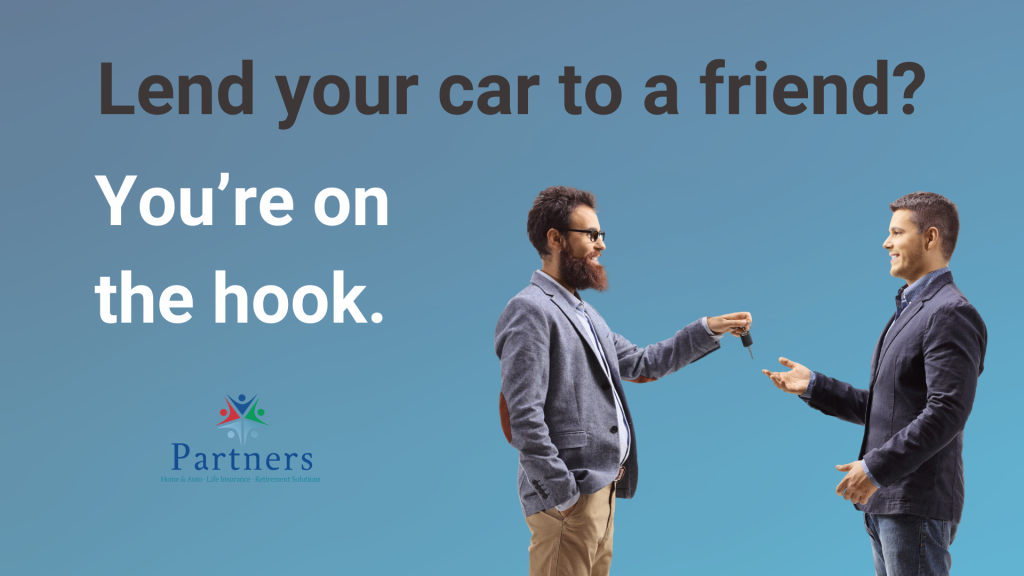
Did you know that you might be on the hook for any accidents that occur if you lend your car to someone? In most states, insurance follows the car, not the driver, meaning that if there’s an at-fault accident, your insurance will pay first. This can have serious consequences for your insurance rates and even impact your ability to get coverage in the future.
Insurance follows the car. Not the driver.
There are different policies with their own coverages, enhancements and exclusions so we are discussing what is typical here. Always check with your agent first to be sure.
Before you decide to lend your car to someone else, it’s important to understand how insurance works. In most states, insurance is tied to the car, not the driver. If someone else drives your car and causes an accident, your insurance will pay for the damages and any injuries that result.
This can have serious consequences for your insurance rates, as accidents can lead to higher premiums or even non-renewal of your policy.
When you lend your car to someone else, you’re essentially transferring the responsibility for that vehicle to them. If they cause an accident, you’re still legally liable for any damage or injury that results.
Even if the driver has their own insurance, your policy will still be the primary coverage in most cases. This can be a financial burden, as you’ll be responsible for paying any deductibles or costs that exceed your policy limits.
Exceptions
There are some exceptions to this rule. For example, you must give the driver permission to drive your vehicle. Insurance companies refer to this as permissive use.
Rental cars work differently. Your personal auto insurance policy will follow you, the driver, for your rental vehicle. Unless you decide to purchase rental car insurance.
Illegal activity won’t be covered. If someone uses your vehicle to commit a crime you’re out of luck.
Car sharing for a fee won’t be covered. If you’re being compensated for renting your car out to others, you’ll need to contact your agent and make the appropriate changes for coverage to apply.
Other commercial uses are also excluded. Some examples would be using it to deliver pizza, hauling construction equipment or driving for Uber or Lyft.
Excluded drivers will result in no coverage. This typically happens when a person lives in your household but has been excluded from the policy due to driving history or maybe they have a separate policy of their own.
Your insurance rate may increase
Your rate will likely increase as a result of an accident. Even if you weren’t the one driving, claims go on your record, and insurers typically view any accident as an increased risk. This means that you might see a substantial increase in your premiums, especially if you have multiple claims or a history of accidents.
Tickets or violations however, are attached to the driver. So, if the driver gets a speeding ticket while driving your car, it won’t be attached to you and won’t have any affect on your auto insurance. It will only show on that driver’s MVR (motor vehicle record).
Final word
Lending your car to a friend or family member can be a nice gesture, but it’s essential to understand the risks involved. Insurance follows the car in most states, which means that you’re on the hook for any accidents that occur while someone else is driving.
This can have serious consequences for your insurance rates and even impact your ability to get coverage in the future. If you do decide to lend your car, make sure you’re comfortable with the risks and that you trust the person driving it. Be cautious and read your policy carefully, so you know what’s covered and what’s not.
As the owner of the car, your insurance pays in most states.
Yes. The claim will go on your record and will likely cause your rates to go up at renewal.
No. The speeding ticket will go on the personal driving record of the person that was driving your car.
Related articles
Best Way to Shop for Car Insurance
Car Insurance | Choosing the Right Coverage Limits
New Car Insurance Grace Period
